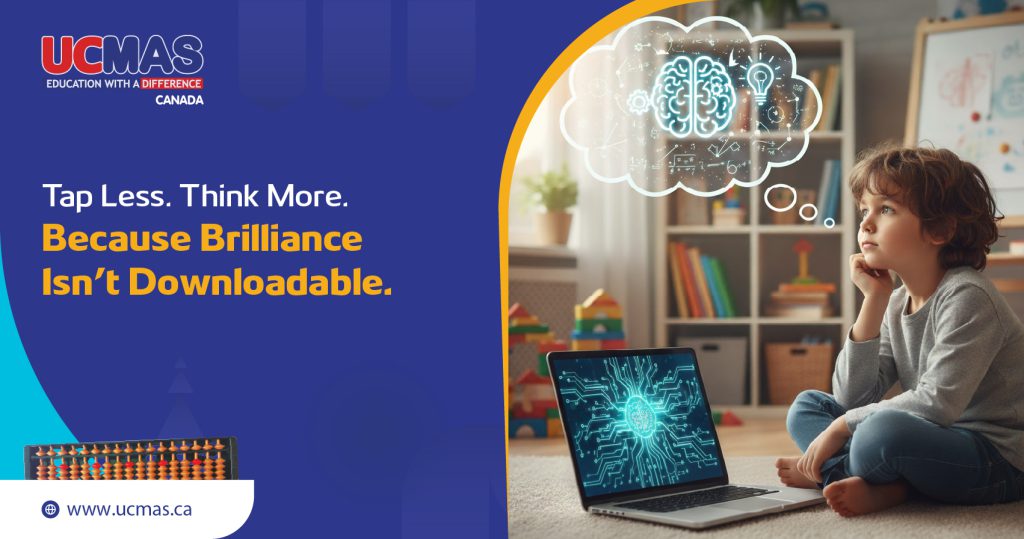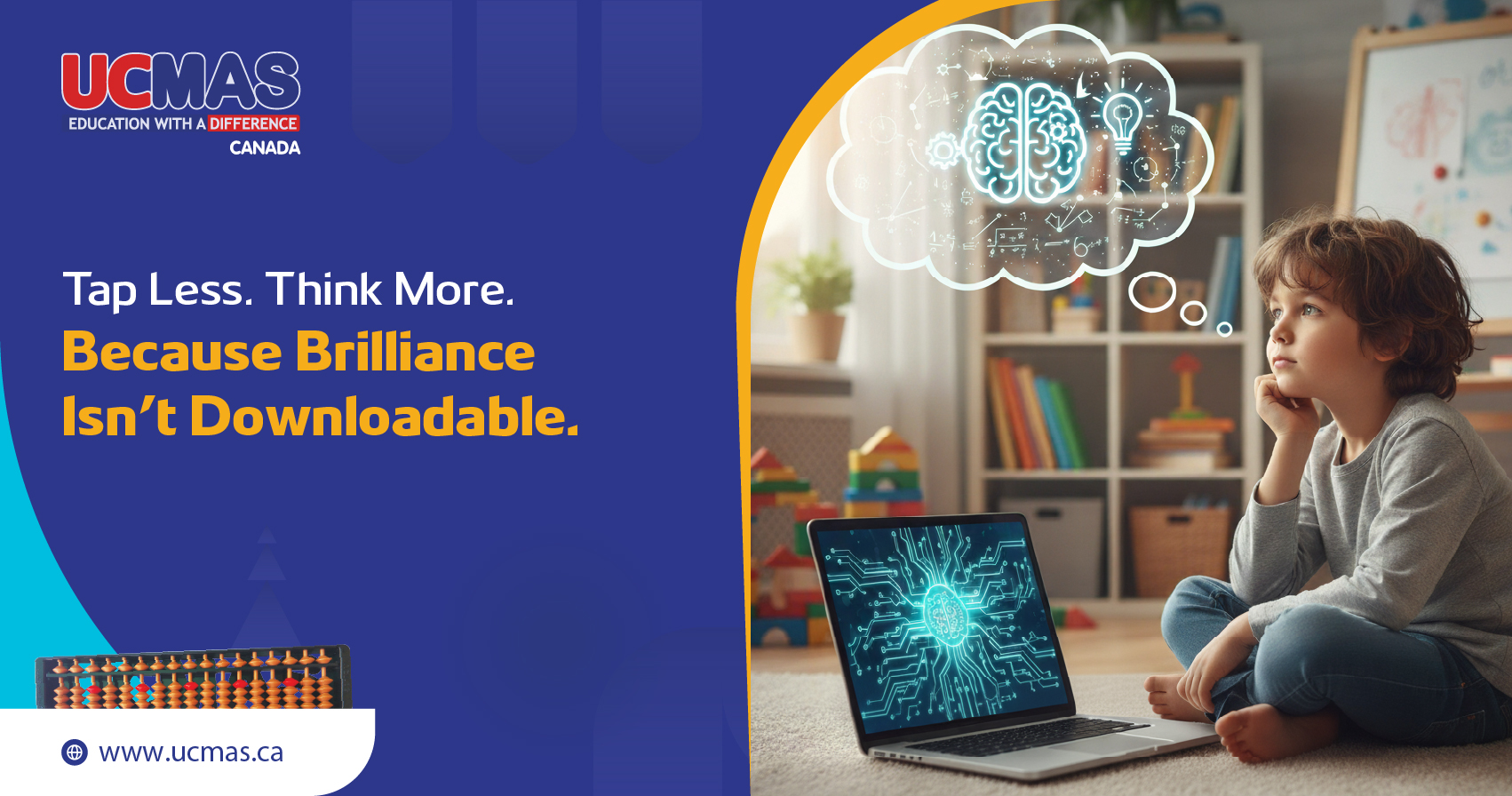
When you hand your child a tablet, open a math app, and within minutes, they’re tapping away, solving problems, and collecting rewards. On the surface, it feels productive after all, they’re “learning.” But fast-forward half an hour, and the excitement fades into blank stares, distracted swipes, and a growing dependency on flashy animations to stay engaged. Sound familiar?
We live in a time where children are surrounded by screens. From school assignments to entertainment, digital overload is real. And while technology certainly has its place, research is increasingly clear that kids learn best when their brains and hands work together. That’s what tactile learning is all about – learning by touching, moving, and doing rather than just watching or tapping screens.
UCMAS introduces this through abacus learning, where children physically move beads to understand numbers, sparking deeper focus, visualization, and whole-brain development in a world that’s become too dependent on devices.
Instead of limiting learning to screen time, UCMAS transforms math into an experience where kids touch, move, and visualize numbers using an abacus. It’s not just another after-school program; it’s a brain development journey that helps children think faster, concentrate better, and develop lifelong learning skills.
Let’s dive in and learn more.
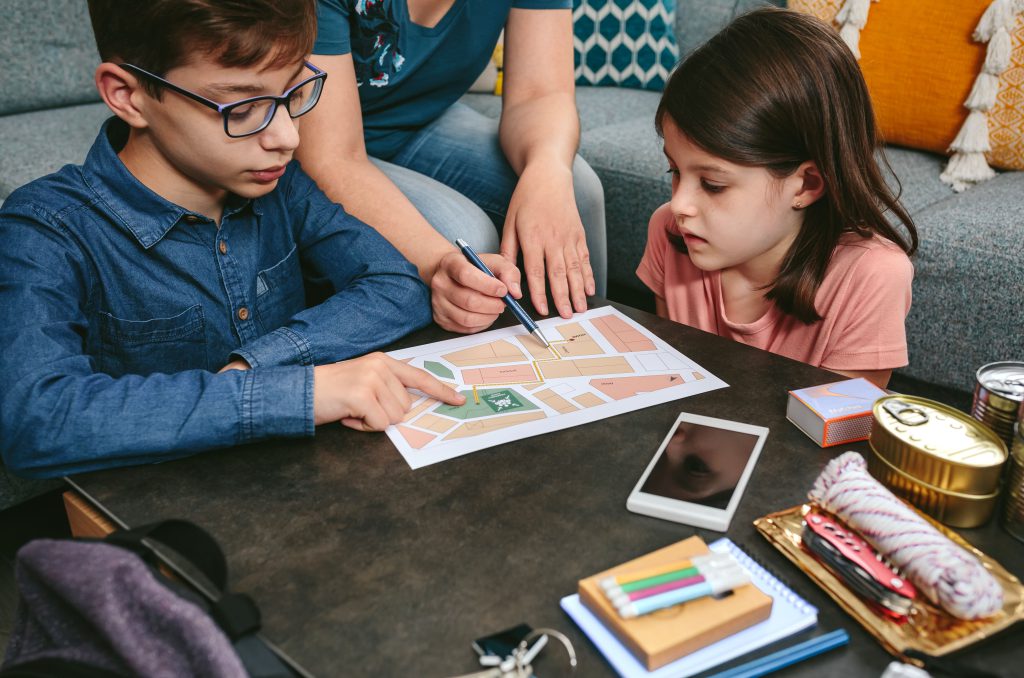
The Digital Dilemma: Are Apps Enough?
Math apps can be fun, but here’s the catch: they often teach children to follow patterns rather than truly understand concepts. Kids get used to instant feedback and gamified rewards, which may keep them entertained, but don’t necessarily train their memory, focus, or creativity.
That’s why many parents find themselves searching “abacus classes near me” because they sense something is missing. Learning shouldn’t just be about memorizing answers or tapping screens; it should involve deep thinking, visualization, and active participation.
When children rely too heavily on screens, they may score points in the app but struggle with problem-solving in real life. Tactile learning, on the other hand, builds the very foundation for deeper skills – like concentration, visualization, and logical thinking – that go beyond memorizing answers.
Talking particularly about UCMAS, their learning methodologies are made to actively engage both the mind and the body. For instance, their 6-finger abacus technique, wherein coordinated finger movements combine with mental calculations to stimulate both sides of the brain. This unique approach not only enhances mental math speed but also fosters creativity and whole-brain development in ways that no screen-based app can replicate.
Why Tactile Learning Works
Think about tying your shoelaces or learning to ride a bike; you didn’t master it by watching a video. You learned it by doing it. That’s exactly how the brain wires itself during childhood. When kids physically interact with tools like the abacus, they’re not just memorizing numbers; they’re activating multiple senses and strengthening neural connections.
At UCMAS, children use abacus learning techniques that go far beyond traditional rote memorization. Moving the beads, visualizing them in their mind, and performing mental calculations all activate both sides of the brain. It’s math, yes, but it’s also creativity, concentration, and confidence rolled into one.
The science backs this up, too. Studies have shown that tactile learning improves retention and comprehension because the brain processes physical actions more deeply than passive screen-based input. If you’re curious, you can dive into the details with this blog that talks about the science behind abacus intelligence.
UCMAS vs. App-Only Math: A Clearer Picture
To make this simple, here’s how tactile learning in UCMAS compares with app-only math:
| UCMAS Tactile Learning | App-Only Math |
| Children physically move beads, strengthening memory, focus, and motor skills. | Children tap screens – learning is mostly visual and short-term. |
| Builds whole-brain skills: problem-solving, creativity, and concentration. | Limited to repetitive practice and instant gratification. |
| Encourages visualization and imagination through abacus math. | Relies on screen animations for engagement. |
| Reduces screen time, balancing digital exposure. | Adds to daily screen overload. |
| Supported by proven neuroscience of whole-brain development. | Limited research on long-term cognitive benefits. |
When you look at it this way, the choice becomes clear: apps may entertain, but UCMAS equips children with skills that last a lifetime.
Beyond Math: Building Smarter, Balanced Kids
Parents often assume UCMAS is “just math,” but it’s much more than that. In fact, calling it math alone undersells its impact. It’s about giving kids the tools to manage focus in a distracted world, to build resilience when challenges arise, and to sharpen their brains in ways apps simply can’t.
It’s the difference between fast food and a nutritious meal. Apps might give kids a quick learning fix, but UCMAS is the wholesome foundation that keeps them strong and ready for bigger challenges.
In an age where artificial intelligence is rapidly reshaping our lives, what children really need is real intelligence, the kind that comes from activating both logic and creativity, not just memorizing answers. That’s exactly what tactile learning with UCMAS provides.
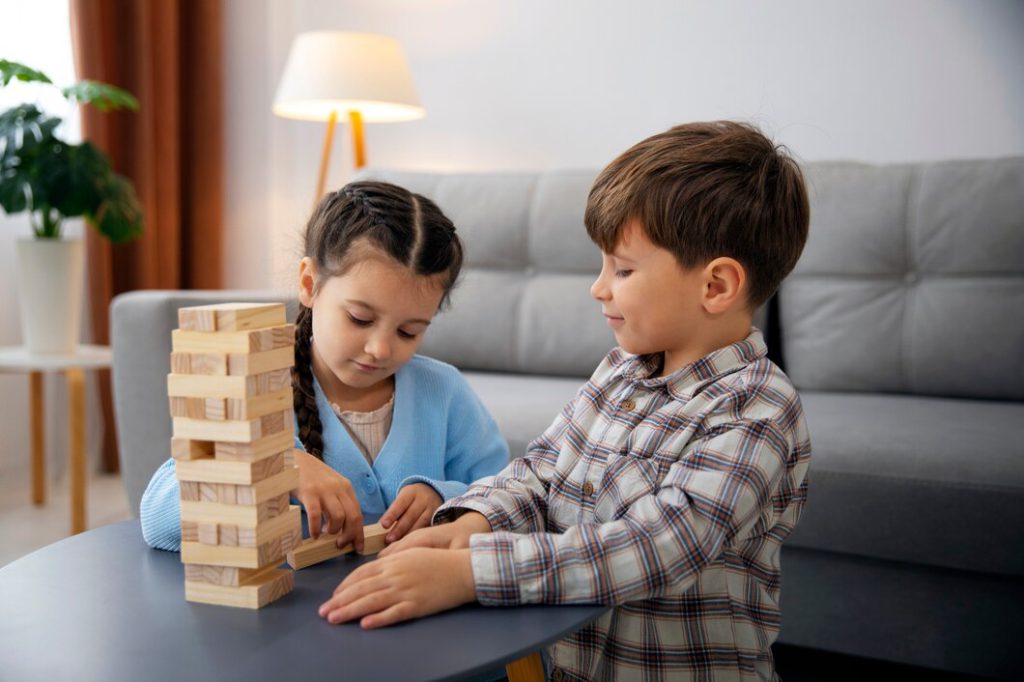
Why Parents Choose UCMAS Afterschool Programs
Many families start with UCMAS simply because they’re looking for an abacus learning centre nearby. But what keeps them coming back is the transformation they see in their children. Kids who once struggled with focus begin to sit through homework without drifting. Children who were shy about numbers suddenly develop confidence that spills into other subjects.
And here’s the best part: UCMAS doesn’t fight against technology. Instead, it complements it. In a balanced learning ecosystem, apps can still play a role, but only when anchored by tactile, brain-strengthening methods like abacus learning.
The Parents’ Takeaway
As parents, we’re constantly juggling decisions about what’s best for our children – choosing the right schools, enrolling in the right activities, and determining the right amount of screen time. But when it comes to math and brain development, one thing is clear: tactile learning isn’t old-fashioned, it’s timeless.
UCMAS is not just an afterschool program; it’s a space where kids unplug, engage their whole brain, and discover that learning can be both fun and transformative. Apps may come and go, but the skills your child gains from an abacus math program are for life.
So the next time you think about math learning, ask yourself: Do I want my child to just “play” math, or to truly master it?
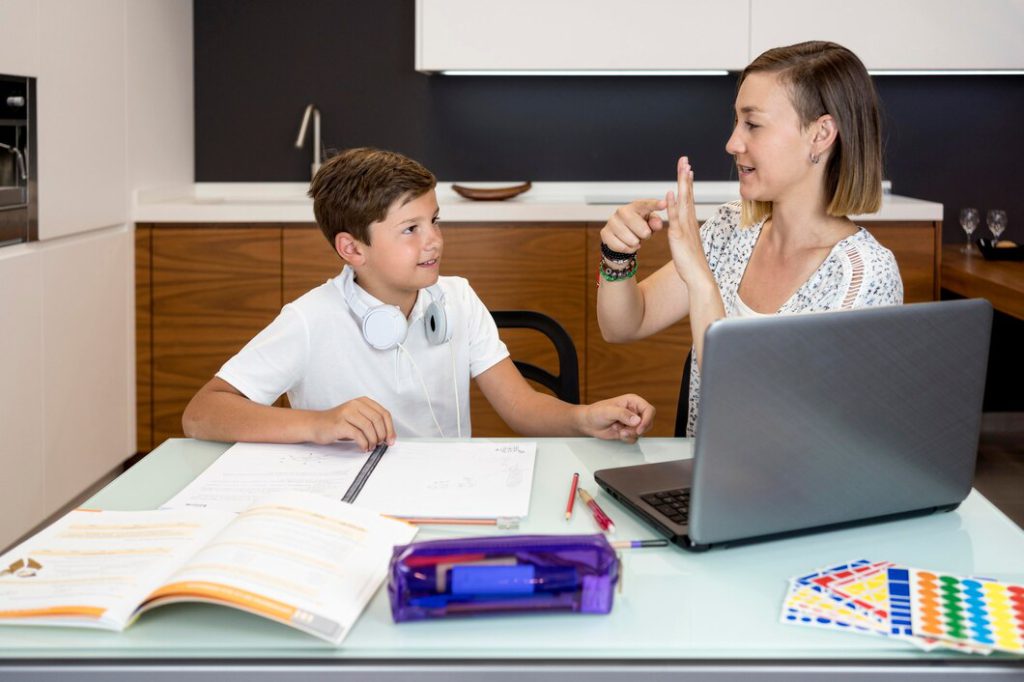
Ready to Help Your Child Break Free from Digital Overload?
If you’re ready to give your child more than just another app, explore how UCMAS can make a difference. With its proven abacus math program, unique abacus intelligence approach, and powerful mental math techniques, UCMAS is more than learning; it’s a brain development journey.
Because the smartest kids of tomorrow won’t just know how to use technology, they’ll know how to think beyond it.
Still have your doubts? Book an info session with us to learn more.



